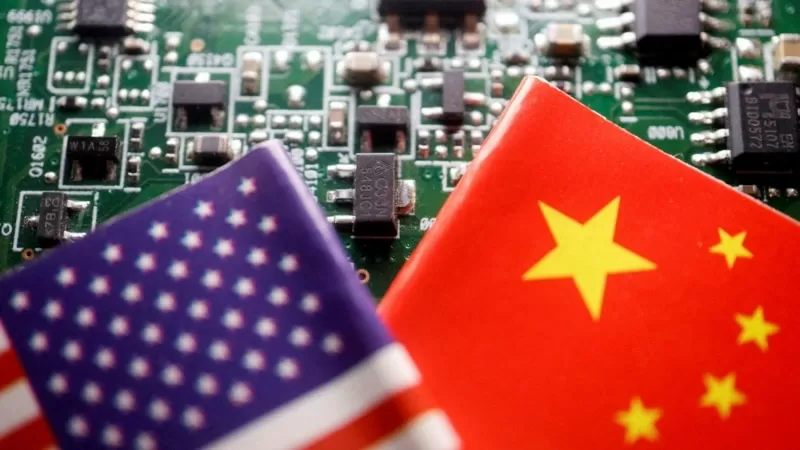U.S. President Joe Biden has unveiled a new set of tariffs aimed at addressing the unfair trade practices of China. The tariffs will impact a wide range of Chinese imports, including electric vehicles, computer chips, and medical products. This decision comes at a crucial time as the Biden administration is working towards wooing voters who have given his economic policies low marks.
The White House has announced that President Biden will maintain the tariffs put in place by his predecessor, Donald Trump, while also increasing tariffs on other goods. This includes a quadrupling of tariffs on electric vehicles to over 100%. The reason behind these measures is to tackle what is seen as unacceptable risks to U.S. economic security due to China’s unfair trade practices.
According to the White House, the new tariffs will affect $18 billion worth of Chinese imports, including steel, aluminum, semiconductors, batteries, critical minerals, and solar cells. This announcement confirms previous reports by Reuters.
The trade gap between the United States and China has been a sensitive topic for years, with the U.S. importing $427 billion in goods from China in 2020 and only exporting $148 billion. This has been a persistent issue for the United States and has become a major concern for the Biden administration.
In a conference call with reporters, White House National Economic Advisor Lael Brainard stated that China is using the same playbook it has before to power its own growth at the expense of other countries. This is done by investing in excess capacity and flooding global markets with underpriced exports due to their unfair practices.
U.S. Trade Representative Katherine Tai justified the revised tariffs by stating that China continues to steal U.S. intellectual property and has become more aggressive in cyber intrusions targeting American technology. She also mentioned that previous tariffs had minimal impact on the U.S. economy while effectively reducing imports from China and increasing imports from other countries.
However, Tai recommended tariff exclusions for certain industrial machinery categories, including 19 for solar product manufacturing equipment from China. This shows that the Biden administration is taking a targeted approach towards addressing unfair trade practices.
While the decision to impose tariffs falls in line with Trump’s stance, President Biden took the opportunity to criticize his opponent in the upcoming election. The White House stated that Trump’s 2020 trade deal with China did not increase American exports or boost manufacturing jobs. They also mentioned that his proposed 10% tariffs on all imports, as well as the possibility of tariffs as high as 60% on all Chinese goods, would harm U.S. allies and raise prices.
The Biden administration assured that their measures are carefully targeted, in coordination with domestic investment and allied countries, and will not worsen the current bout of inflation that has angered U.S. voters. They also downplayed the risk of retaliation from China.
Despite these efforts, President Biden has faced challenges in convincing voters of the effectiveness of his economic policies, with a recent poll showing that his opponent has an edge over him on the economy. Analysts have warned that a trade dispute with China could raise costs for electric vehicles, which could harm Biden’s climate goals and his aim to create more manufacturing jobs.
However, Biden has stated that he wants to compete with China, not start a trade war, as both countries have mutually dependent economies. He has worked towards easing tensions in one-on-one talks with Chinese President Xi Jinping.
Both Biden and his opponent in the upcoming 2024 Presidential election have diverged from the free-trade consensus that once dominated Washington. This change in approach was sparked by China’s entry into the World Trade Organization in 2001.
China has responded to the tariffs with criticism, stating that they are counterproductive and risk inflaming tensions. Trump’s previous imposition of tariffs during his presidency triggered a trade war between the two countries.
The announcement of the new tariffs is a part of President Biden’s revision of tariffs under Section 301 of the Trade Act of 1974. These tariffs will be raised on electric vehicles, from 25% to 100%, bringing the total duties to 102.5%. Tariffs on lithium-ion EV batteries and other battery parts will also increase from 7.5% to 25%, while tariffs on photovoltaic cells used to make solar panels will rise from 25% to 50%. The tariffs on ship-to-shore cranes will go up from zero to 25%, and those on syringes, needles, and certain medical equipment will increase from nothing

